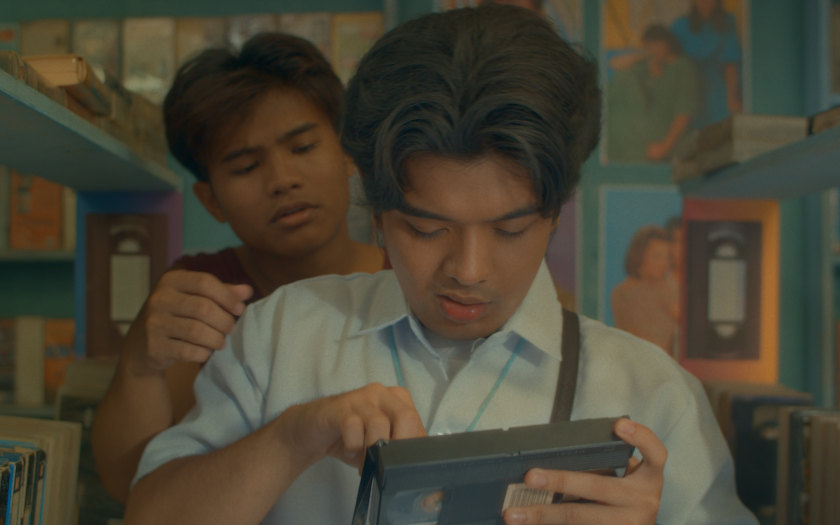Vassilis Kroustallis reveals the LGBT+ teen Philippines drama 'Huling Palabas'.
'Huling Palabas' means 'the last show', and the first feature film by Philippino filmmaker Ryan Machado, who succeeds in making an empathetic portrait of a young boy in romantic and sexual awakening during the first years of the 21st century. Set in 2001 in the director's hometown of Romblon, Philippines, 'Huling Palabas' gently plays with both the coming-of-age genre conventions and the cinephile dramas, making his central character Andoy (Shun Mark Gomez) the epitome of a film buff -in the VHS territory (still active in the Philippines during the era)
The soon-to-be 17-year-old Anday lives with his aunt and her cocky husband and hunk Julio (Jay Gonzaga), who seems to think of Anday as a burden to reckon with. Anday's mother is absent from his life, working elsewhere (and sometimes neglects to provide a regular income for her son's expenses), while his father is an absent figure. Anday spends his time biking and watching movies (dramas, not action films) with his bestie Pido (Bon Andrew Lentejas). He's doing a good job at school (but unacknowledged by his relatives) and knows all the Greek fathers of history and medicine -but not the one that matters the most to him.
Yet Machado and his script will substitute the absent father theme with the new encounters; Andoy will soon meet the free-wheeling Isidro (Cedrick Juan), who likes to lie shirtless in his place and outside of it, and the hairdresser Ariel (Serena Magiliw) - a surrogate mother who can push the cinephile Andoy beyond his VHS regular activities. Those three characters (Isidro, Ariel, and Pido) vie for attention in Andoy's life -instead of a single one monopolizing his romantic interest. 'Huling Palabas' is more democratic in its love allocation, and more open in its metaphysical and spiritual explanations about absent figures (even though the latter are used predominantly as placeholders without a relevant screening value).
The cinematography (by Theo Lozada) gives a hazy feeling of being there without understanding everything about being in place. In one of the film's most beautiful shots, the two boys and friends contemplate the big mountains ahead of them, which have the big city hidden - a city that both of them inadvertently head toward. Here, the piano musical arrangements underscore the almost classical disposition of Anday in his movie choices -soon to be altered. And, of course, one cannot underestimate the importance of the community watching cinema and its home culture in the film. We route for the melancholy of an era of extended home viewing that seems to have been eliminated for good. A single VCR machine that needs to be shared, VHS rental fees that the kids cannot pay on time, Andoy's drawing that can make it into a slideshow, and his own movie (another of the film's touchy highlights) are specimens of a culture that the film excellently reminds.
Machado rightly wants neither a one-to-one LGBT+ romance between the two boys nor a 'Call Me By Your Name', younger-to-older fantasy. Yet, for all his care, the film still has some loose ends and relationships both deeply felt and then suddenly abandoned. Andoy's burgeoning curiosity seems to be the explanation behind those; still, the moment romantic awakening registers, the camera hastily moves on to the next target, leaving both Andoy and the audience unfulfilled. Yet, 'Huling Palabas' is a genuinely sensitive LGBT+ film and a beautifully given end of an era -and the beginning of a new one. And it has some well-deserved fun with its sex scenes as well.
'Huling Palabas' screened at the Generation KPlus section of the 74th Berlin Film Festival
Vassilis Kroustallis


